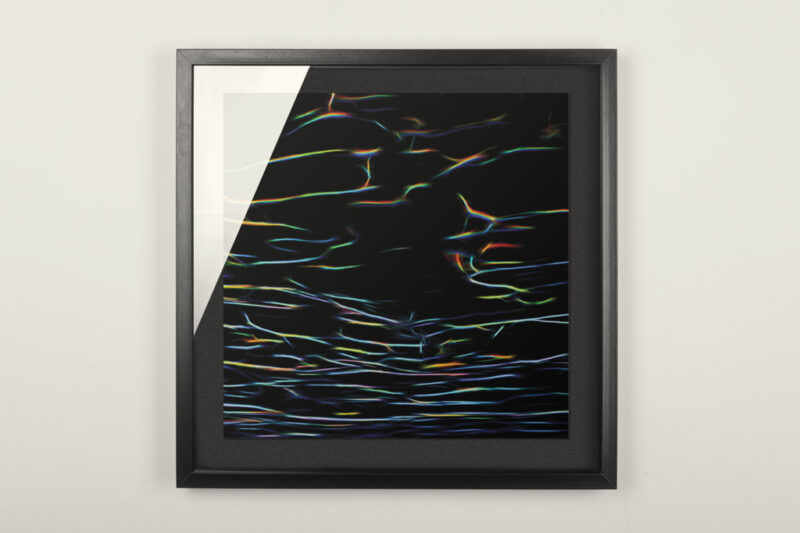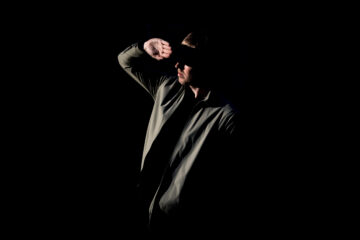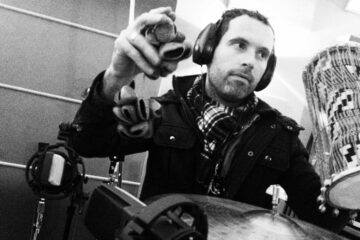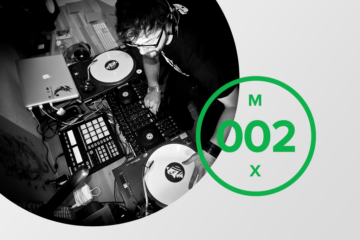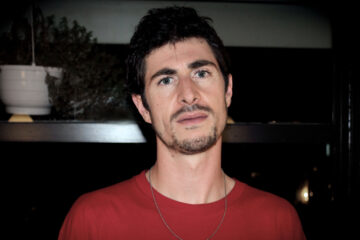There would have been no dub without seafaring. Not without reason did one of the pioneers of the genre give his studio the name of a ship: many of the genre’s central albums were produced in Lee »Scratch« Perry’s Black Ark. However, dub is also a manifestation of what the cultural theorist Paul Gilroy once called the »Black Atlantic« in his book of the same name, a diasporic culture that was founded by force in the context of the transatlantic slave trade. Dub always has a political dimension because it resonates with what Gilroy called a »double consciousness«: a form of identity that had its home on both sides of the Atlantic.
When dub spilled over into Europe and was combined with Detroit techno in Berlin studios, this dimension was lost. One project, however, incorporated metaphors of ports, the nautical and movement in its track titles: Porter Ricks named themselves after the owner of the dolphin Flipper from the series of the same name and gave their first tracks, released on vinyl in 1996, names like »Nautical Dub« or »Port of Call«. Flanked by two more tracks, they appeared on CD on the Basic Channel sub-label Chain Reaction in the same year, and the album was named after the two bonus pieces: »Biokinetics,« a term from biomechanics that describes the study of body movements. Unlike dub or techno, dub techno actually seemed primarily intended to put the mind rather than the body into such movements. At least not the human one.
»Biokinetics« is a study of moving sound bodies whose kinetic energy is released on the firm foundation of ponderously stomping kick drums. With all due calm, of course. The opener »Port Gentil« takes a minute and a half to develop a beat from a massive pulse, with sparingly used looped chords hovering above it. A mechanical rattling starts – is that the soundscape of a ship’s engine room? Suddenly there is a buzzing in the air, a siren sound of sorts, until finally an accentuated hi-hat turns the gaseous rhythm into a solid groove. After about six and a half minutes, the siren sounds reach their intensity plateau and for a while, everything remains largely the same until the end of the track imitates its beginning, everything slowly sinks back into the sea and only the metallic rattling remains clearly audible. The ship moves on.
With its subtle sound modulations and sweeping gestures, »Port Gentil« already formulates the complete musical programme of Thomas Köner and Andy Mellwig, but it no means defines the tonality of »Biokinetics.« The scratchy »Nautical Dub« with its tense bassline is reminiscent of Maurizio, »Biokinetics 1« abstracts the dub techno idea into an oppressive slo-mo power electronics track and even though »Biokinetics 2« picks up the spherical-ethereal thread of the first piece, the kick is lowered a tone and the rhythm is subdued, a mere pulse.
The fact that »Port of Call« sounds like an overdriven but down-pitched minimal techno record, »Port of Nuba« is a literally dry-sounding piece stripped to bass and rhythm and that »Nautical Nuba« merely continues this with more added sound effects before »Nautical Zone« picks up the thread of »Port Gentil« but condenses the source material all the more, makes this record feel like one arduous odyssey that ultimately finds its end in the home port. »Biokinetics« may in one way be little more than a collection of tracks, but dramaturgically they are arranged according to a principle that is already anticipated in nuce in the prelude.

Because that, Köner and Mellwig told the then Pitchfork editor Philip Sherburne in one of their rare interviews was the real »biokinetic experience—that’s our metaphor for the dance and the body and all its expressions.« It was a utopian idea, and what is Utopia, after all? An island in the sea of possibilities. »Biokinetics« circumnavigates it with powerful movements.
Please find the vinyl records of Porter Ricks findest in the [HHV Records webshop](https://www.hhv.de/shop/de/porter-ricks-vinyl-cd-tape/i:A72767D2N4S6U9.)

